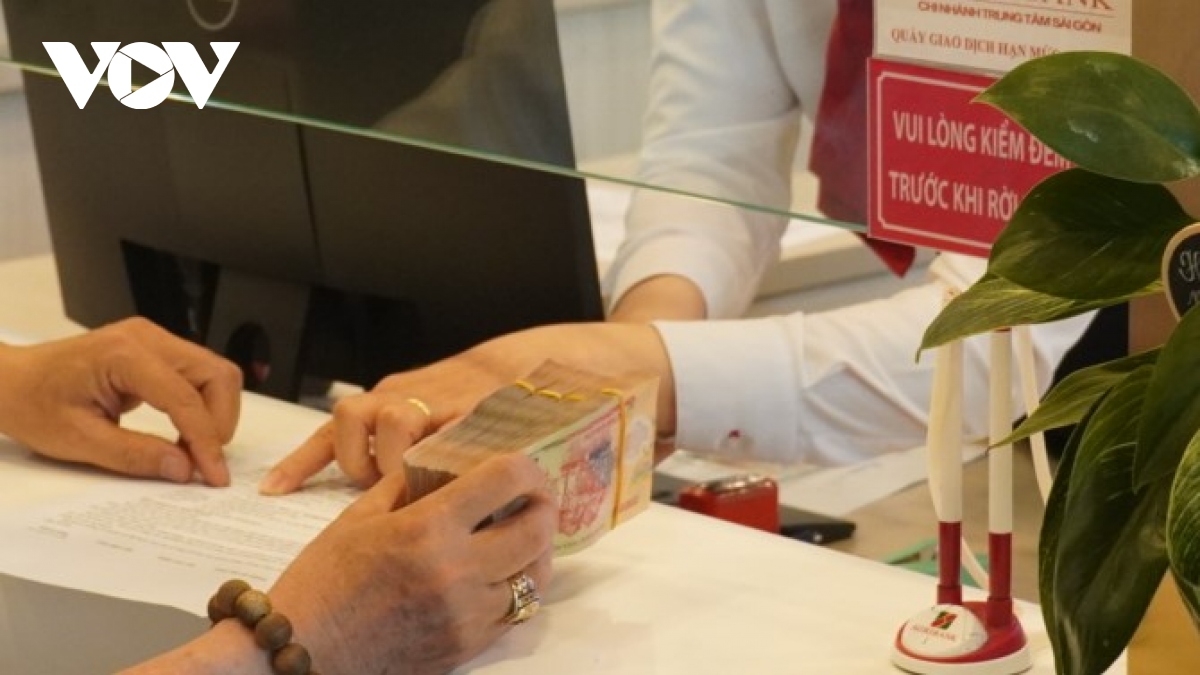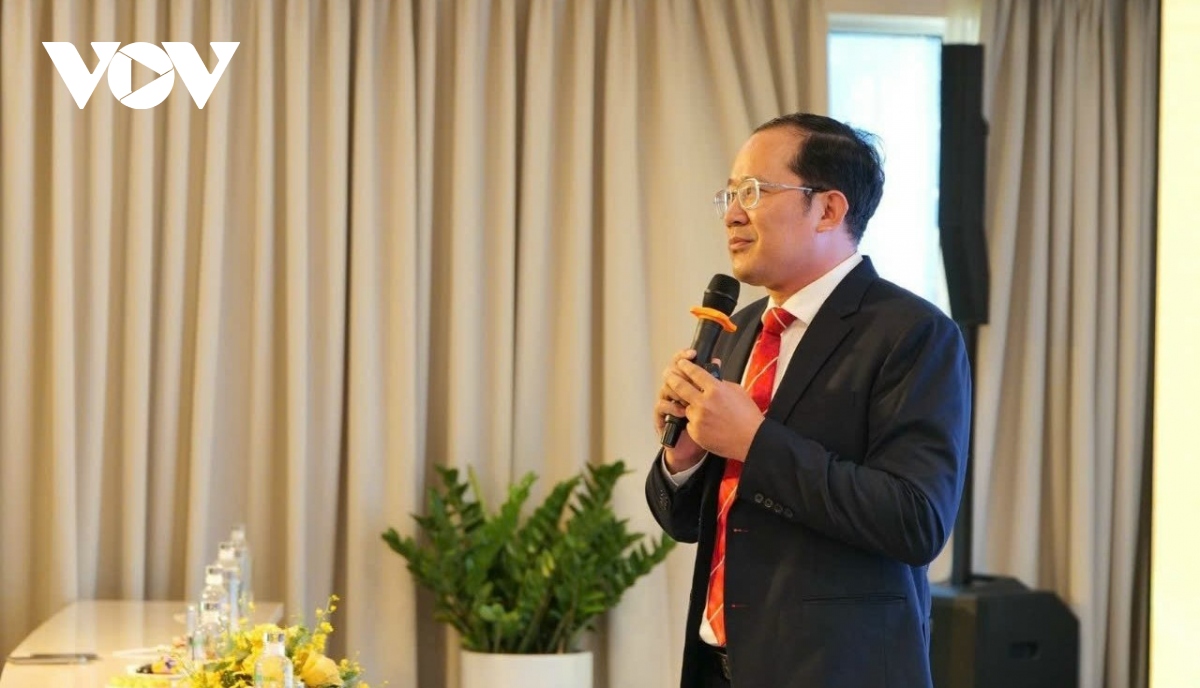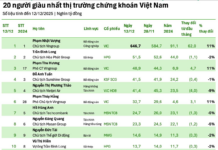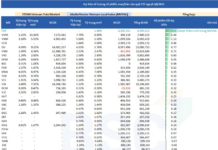Enhancing Bank-Business Connections
According to the State Bank of Vietnam, as of the end of July 2024, total credit outstanding to the economy reached nearly VND 14,330 trillion, up 5.66% compared to the end of 2023, while this year’s credit growth target is 15%.
Specifically, in Ho Chi Minh City, the country’s economic locomotive, total credit outstanding in the city reached VND 3,680 trillion by the end of July 2024, up 11.47% compared to the same period last year.

The slight decrease in credit in July 2024 in Ho Chi Minh City was mainly due to the reduction in short-term loans and foreign currency loans (Photo: Hoang Minh)
Mr. Nguyen Duc Lenh, Deputy Director of the State Bank of Vietnam’s Ho Chi Minh City Branch, said that to continue injecting capital into the economy, in the past seven months, the city, together with credit institutions, successfully organized 26 conferences to connect banks and businesses. Through these events, they engaged in dialogues, addressed difficulties, and signed loan agreements with businesses, disbursed preferential credit packages, and promoted banking services.
Thus far, credit institutions in the city have disbursed VND 306,414 billion to 97,138 customers, including businesses, households, and cooperatives (equivalent to 60% of the scale of preferential credit packages).
Mr. Nguyen Duc Lenh asserted that the credit growth rate in the city is developing positively, and the banking sector is still meeting the capital needs of businesses to promote economic growth.
“The central bank’s orientation is to continue supporting interest rates for businesses based on input cost reduction, improving operational efficiency, and sustainably lowering lending rates. Therefore, businesses need to proactively expand production and business activities to grow and develop,” said Mr. Nguyen Duc Lenh.
In the coming time, the State Bank’s Ho Chi Minh City Branch will continue to coordinate with districts, departments, associations, and other entities to effectively implement various preferential programs to support businesses in production and business activities.
Improving Credit Quality
According to Dr. Nguyen Anh Vu, Head of the Finance Department at the University of Banking in Ho Chi Minh City, to quickly channel capital into the economy, banks need to improve credit quality, create real value, and achieve sustainable growth rather than growth at all costs.
Credit institutions should reduce lending rates as much as possible, streamline procedures, and expedite credit approval processes. Regarding loan approval procedures, many businesses have had financial difficulties in recent years, so banks are still cautious about disbursement. While businesses urgently need capital to recover production and business operations, banks cannot risk granting credit to prevent bad debt.

Dr. Nguyen Anh Vu, Head of the Finance Department, University of Banking, Ho Chi Minh City (Photo: Hoang Minh)
Dr. Nguyen Anh Vu stated that there needs to be a harmonious balance in the technical aspects of credit granting. Banks should base their lending decisions on both the current situation and the prospects for the business’s recovery in the future. On the other hand, businesses must diversify their capital mobilization channels. Financial, tax, revenue, profit, and accounting information must be transparent and professional for easier access to capital.
Accordingly, credit institutions need to review and be more flexible in applying credit conditions while strengthening risk control. Relaxing and lowering lending conditions and standards is necessary but must be done carefully and moderately to avoid credit speculation that creates asset bubbles, potentially leading to bad debt in the future and posing risks to the banking system.
Dr. Can Van Luc, Member of the Monetary and Financial Policy Advisory Council, suggested that credit institutions should balance capital mobilization costs and effectively implement the proposed credit packages, as well as restructure debts and lending activities.
Regarding businesses, Dr. Can Van Luc emphasized the need to resolutely restructure operations, improve capital usage efficiency, and properly fulfill debt repayment commitments. “We must persistently advocate for the right policies, with a focus on restructuring, paying more attention to cash flow, and risks associated with cash flow, exchange rates, and interest rates. Additionally, we should proactively access support packages and channels as per the resolutions of the Central Committee and local authorities. Greening and digitizing our operations are also crucial, along with revitalizing our corporate culture,” he added.
Dr. Can Van Luc proposed that the National Assembly and the Government allow the implementation of support policies for people and businesses, as applied in 2023. These include continuing to reduce interest rates and stabilizing exchange rates and commodity prices.
Banking: Huge Profits Yet Worried
Several banks have announced their 2023 financial results, showing outstanding growth. However, they are also facing increased pressure in setting aside provisions for credit risk.
Three Economic Growth Scenarios for Ho Chi Minh City in Q1 2024
At the socio-economic meeting reviewing the results of January and setting the goals for February 2024, held this morning (1/2), the Ho Chi Minh City Institute for Research and Development has presented three economic growth scenarios for the first quarter of Ho Chi Minh City.












































